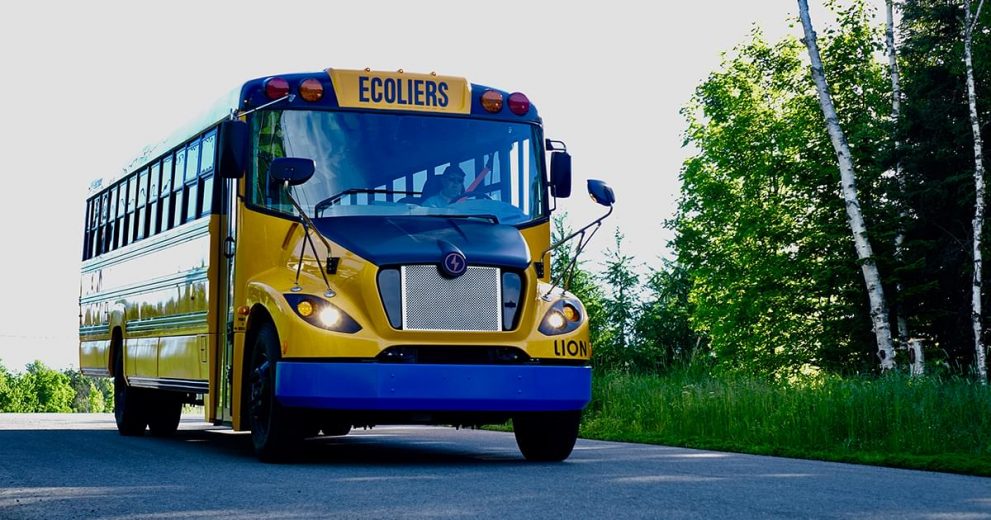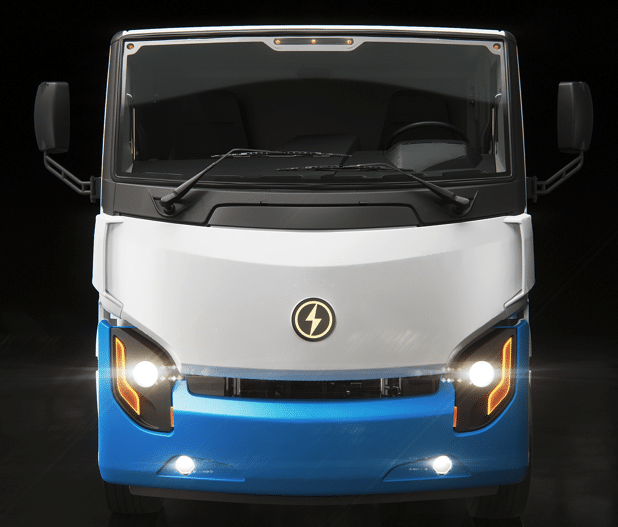
Quebec-based electric vehicle maker Lion Electric (Lion Electric Stock Quote, Charts, News, Analysts, Financials TSX:LEV) just received a huge order for its all-electric school buses, giving a jolt to the company’s share price. Not only are its buses built to support Canada’s emissions targets, says CEO and founder Mark Bedard, but despite concerns over battery fires in electric vehicles the EV school buses are actually safer for the kids riding on them.
“In general, electric vehicles are a lot safer, but that being said, safety always has to be at the top of our minds and the battery management system and the cooling system is really what it takes to make sure that [the vehicle] works properly,” said Bedard, speaking on BNN Bloomberg on Tuesday.
This summer, GM announced a major recall of its Chevy Bolt EV due to the risk of fire, with the company saying 13 fire incidents were recorded in a little over a year. Other EV makers such as Tesla have dealt with bad press after incidents of cars catching on fire including an incident in July involving a top-line Model S Plaid EV.
But the lithium-ion batteries running in most electric vehicles are a technology that has a long track record of product safety including in vehicles where studies have shown that the risk of a fire incident is similar to or less than that from gas or diesel-powered cars, with less dire results in the cases where combustion does occur. At the same time, collisions with EVs have also been shown in crash tests to offer less chance of people getting injured.
Bedard said the difference comes down to a lack of familiarity with electric vehicles.
“The electric vehicle is safer than the usual diesel or gas vehicle. We’ve been driving the other vehicles for so long that we seem to forget that those vehicles … can [catch fire] at some point,” he said.
Lion announced on Monday a purchase order from Student Transportation Canada, a subsidiary of Student Transportation America, for 1,000 all-electric LionC school buses, which would effectively make the STC the largest operator of zero-emissions school buses in North America. The order is said to be conditional on funding from Infrastructure Canada’s multi-billion dollar Zero-Emission Transit Fund (ZETF), with the STC having filed an application for funding.
Bedard says the ZETF will cover about half of the cost of the buses.
“[The Canadian government] was looking for leaders to work together and, obviously, having STC and Lion working together is exactly what we think that the the Canadian government was looking for,” he said.
Now over a decade old as a company, Lion makes both school buses and electric trucks, having introduced the Lion8 fully electric Class 8 truck with a range of 250 miles. The company went public this past May and has Power Corp as a major investor owning 36 per cent of Lion.
Bedard said, “It took us [a long time] to do everything we’re doing. We’ve been working on electric buses since 2010 and we’ve been working on electric trucks for almost the last six years now. Everything we’re doing is purpose built and safety is always number one. We’re basically working with the fleet operator, make sure that what we’re putting to market will be a perfect fit for their duty cycle.”
Going beyond the climate credentials of EV buses, Bedard also pointed to the added advantages of electric school buses, which are silent and don’t expose schoolchildren to harmful diesel fumes.
“What we’re selling right now is between 150 kilometres of range and 250 kilometres of range on a single charge. But in most of the cases they don’t even have to recharge during the day and even that night it will take the standard charging [of] five, six or seven hours to recharge,” he said.
Lion has announced a number of supply contracts recently including all-electric utility trucks to a Vermont power company, a fleet of EV school buses to the province of Prince Edward Island and the unveiling of an all-electric ambulance scheduled to be commercialized later in 2022.
Lion, which reports its third quarter financials on November 11, generated $16.7 million in revenue for its second quarter 2021, up from $6.1 million a year earlier, and gross profit of $0.9 million. Adjusted EBITDA for the quarter was negative $5.5 million compared to negative $0.1 million for the Q2 2020.
Over the second quarter, the company delivered 61 vehicles compared to 22 during the same period a year ago and reported a vehicle order book of 965 all-electric vehicles with a total order value of over $280 million. Lion said the construction of a shell building at its Joliet, Illinois, manufacturing facility was 80 per cent complete and was expected to begin production during the second half of 2022.
Leave a Reply
You must be logged in to post a comment.





 Share
Share Tweet
Tweet Share
Share




Comment